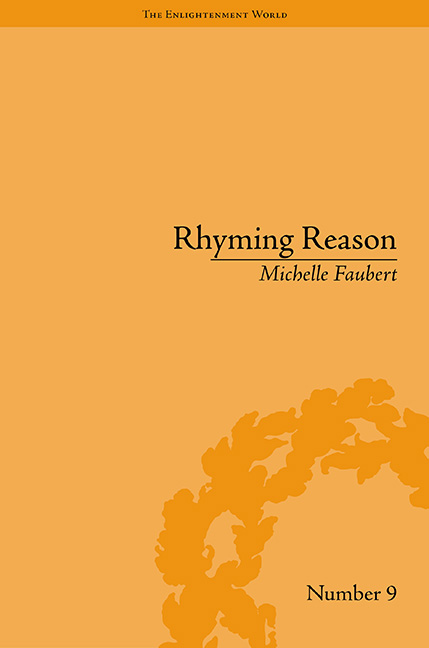Book contents
- Frontmatter
- CONTENTS
- Dedication
- Acknowledgements
- Preface: Psychologist-Poets, Disciplinary Power and the Modern Subject
- Introduction: Romantic-Era Psychologist-Poets and the Historical Context of Early British Psychology
- 1 Erasmus Darwin, James Beattie and Nathaniel Cotton as Pre-Romantic Psychologist-Poets
- 2 The Human Touch: Thomas Bakewell, Andrew Duncan Sr, John Ferriar and Moral Management
- 3 Thomas Trotter, William Perfect and Thomas Beddoes: Nervous Illness and Social Hygiene
- 4 The Unelected Legislator: Associationism and Thomas Brown's Subliminal Poetic Lessons
- Conclusion: Thomas Forster, Phrenology and the Reification of the Disciplines
- Notes
- Works Cited
- Index
Preface: Psychologist-Poets, Disciplinary Power and the Modern Subject
- Frontmatter
- CONTENTS
- Dedication
- Acknowledgements
- Preface: Psychologist-Poets, Disciplinary Power and the Modern Subject
- Introduction: Romantic-Era Psychologist-Poets and the Historical Context of Early British Psychology
- 1 Erasmus Darwin, James Beattie and Nathaniel Cotton as Pre-Romantic Psychologist-Poets
- 2 The Human Touch: Thomas Bakewell, Andrew Duncan Sr, John Ferriar and Moral Management
- 3 Thomas Trotter, William Perfect and Thomas Beddoes: Nervous Illness and Social Hygiene
- 4 The Unelected Legislator: Associationism and Thomas Brown's Subliminal Poetic Lessons
- Conclusion: Thomas Forster, Phrenology and the Reification of the Disciplines
- Notes
- Works Cited
- Index
Summary
In this study, I introduce a hitherto virtually unknown body of work – the poetry of Romantic-era psychologists – and argue that the poets can be viewed as a distinct group because of their common intellectual interests, poetic themes and ideas about their own cultural roles as doctors of the mind. In their anthology of psychological texts, Three Hundred Years of Psychiatry, Richard Hunter and Ida Macalpine note, ‘It is a curious fact how many psychiatric physicians of the eighteenth and nineteenth centuries devoted leisure to writing verse, most of it minor and long forgotten’. I argue that this verse is much more than a curiosity and that its status as ‘minor poetry’ does not do justice to its significance for Romanticism, the history of psychology and the broad field of literary criticism that explores the intersection of psychology and literature of any period. The verse of early psychologists affords many important insights into the relationship between science and poetry in the Romantic era, a relationship that inevitably shapes our thinking about disciplinarity. In my exploration of the fields’ reciprocal influences, I will show how psychologists used literary methods to develop their professional identities and psychological theories, how features of the broader psycho-medical culture of the Scottish Enlightenment are reflected in Romantic-era literature, and, as I will explain in this preface, how this interrogation leads us to far-ranging new insights about Romantic-era subjectivity and the relation of disciplinary power to literature.
My study of the poetry of Romantic-era psychologists traces a general pattern from egalitarianism to authoritarianism, but the real story is more complex than that. I will show that English psychology was influenced by the democratic and knowledge-sharing tradition of the Scottish Enlightenment and that this tradition was tied directly to the decision of many psychologists to write poetry, making the poetry itself an expression of their liberal politics. However, as will become clear, even this poetry illustrates the subjectifying nature of disciplinary power in the end.
- Type
- Chapter
- Information
- Rhyming ReasonThe Poetry of Romantic-Era Psychologists, pp. xi - xxiiPublisher: Pickering & ChattoFirst published in: 2014



